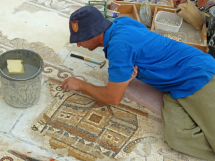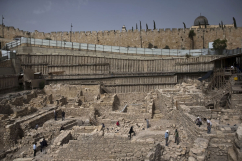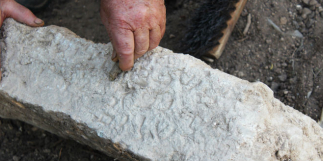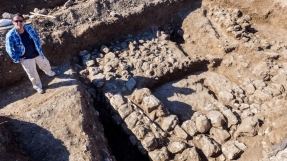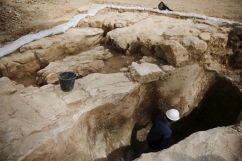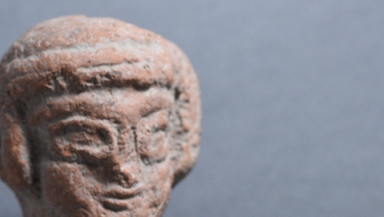
An ideal wife should provide for the needs of her household while her husband is engaged in public and legal affairs, according to Proverbs 31:13-23.
"She seeks wool and flax, and works with willing hands...Her husband is known in the gates, when he sits among the elders of the land," the Bible says.
But it seems that 600 years before the birth of Christ, some women had power and authority of a kind more normally associated with men of that era.
A rare 2600-year-old seal bearing the name of a woman called Elihana has been found by archaeologists in Jerusalem, an indication she would have owned property in her own right and conducted business affairs.
Another seal bearing the name of a man was found nearby.
The seals of Elihana bat Gael and Sa'aryahu ben Shabenyahu were found by the Israel Antiquities Authority at the City of David national park.
Of the first seal, archaeologists said: "The owner of the seal was exceptional compared to other women of the First Temple period: she had legal status which allowed her to conduct business and possess property.
"Finding seals that bear names from the time of the First Temple is hardly a commonplace occurrence, and finding a seal that belonged to a woman is an even rarer phenomenon."
The seals were found after nine years of excavations which took archaeologists down to the the strata of ancient Jerusalem of the First Temple period. The two seals were found inside a building made of ashlars, believed to have been used as an administrative centre.
Doron Ben-Ami, Yana Tchekhanovets and Salome Cohen, excavation directors, said: "Personal seals, such as those of Elihana and Sa'aryahu, were used for signing documents, and were frequently inlaid as part of a ring that was worn by the owner. In antiquity they designated the identity, genealogy and status of the owner of the seal."
Hagai Misgav of Hebrew University in Jerusalem said: "Seals that belonged to women represent just a very small proportion of all the seals that have been discovered to date. This is because of the generally inferior economic status of women, apart from extraordinary instances such as this. Indeed, the name Elihana does not appear in the Bible, and there is no other information regarding the identity of the woman, but the fact that she possessed a seal demonstrates her high social status.
"Most of the women's seals that are known to us bear the name of the father rather than that of the husband. Here, as in other cases, this might indicate the relatively elevated status of Elihana, which depended on her original family."










